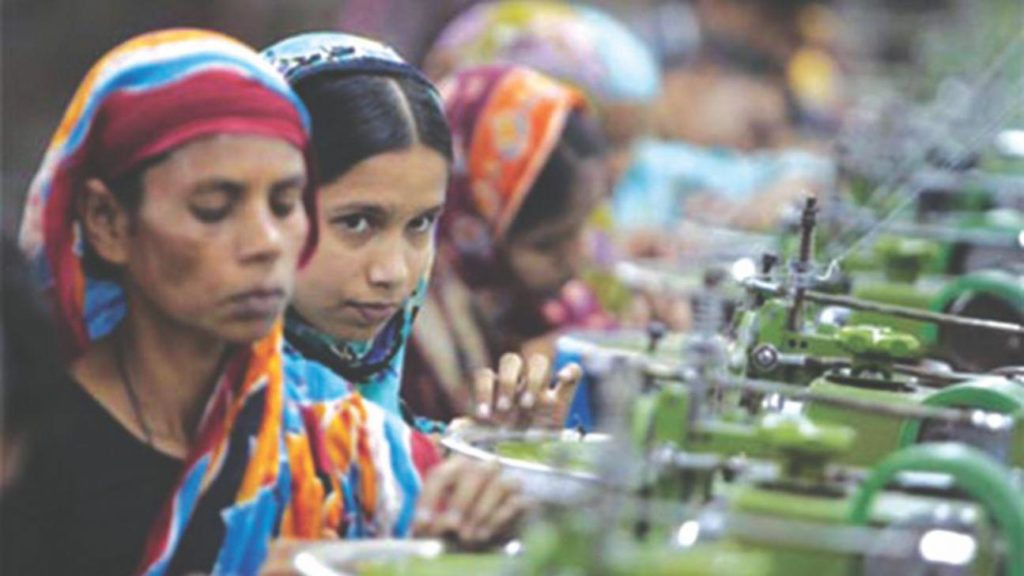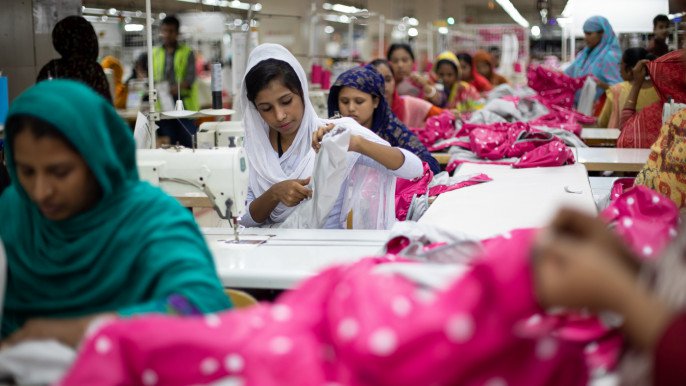Published in The Daily Star on February 02, 2018

Equal pay for equal work, the right to form a union—these, among other standards, protect workers from exploitation in the workplace globally. The International Labour Organisation (ILO) sets out core labour standards which member states, such as Bangladesh, are expected to adhere to. These centre around freedom of association, right to collective bargaining, protection against forced or compulsory labour, abolition of child labour, and protection against discrimination in employment.
The 2006 Bangladesh Labour Act (BLA) was amended in 2013 to align it closer with international labour standards. It incorporated provisions to protect workers’ rights including the right to form trade unions without informing employers and improving occupational health and safety conditions. The Bangladesh Labour Rules 2015 were put in place in order to ensure better implementation of the BLA.
In practice, however, Bangladesh ranks among the top 10 worst countries with regards to workers’ rights. The Global Rights Index 2017 report by the International Trade Union Confederation cited numerous cases of detention of union leaders and workers’ rights advocates and criminal complaints filed against, and suspension of, workers following strikes.
Equally concerning as the lack of workers’ voice is the ever-present risk of accidents, injury and deaths at the workplace. A report by the Bangladesh Occupational Safety, Health and Environment (OSHE) Foundation counted 1,242 casualties and 371 injured as a result of accidents in the workplace last year.
Female participation in the workforce currently stands at 29.1 percent, according to World Bank 2017 figures. With female workers dominating certain sectors such as ready made garments and domestic work, we take a look at how well they are protected by the law.
International labour standards vs national labour law
Bangladesh has ratified seven out of the eight fundamental ILO conventions. One of these core labour conventions upholds the rights of female workers to equal remuneration as their male counterparts.
While the international standard of equal pay for equal work is reflected in the Bangladesh Labour Act (BLA), the gender pay gap continues to flourish, particularly in the informal sector.
Even if male and female workers work the same number of hours, they end up getting paid different amounts. Moreover, the legal framework does not provide any protection for workers in the informal sector.
There is no specific ILO convention to address sexual harassment and violence at the workplace but these protections are called for in numerous other conventions. The BLA offers limited protection with only the following provisions—women cannot be forced to work between 10 pm at night and 6 am in the morning without their consent and there can be no indecent behavior towards female workers in the workplace.
In 2009, a High Court ruling in response to a petition filed by the Bangladesh National Women Lawyers’ Association (BNWLA) set out guidelines for protection against sexual harassment at workplaces and other institutions. It defined what constitutes sexual harassment and asked authorities to set up sexual harassment complaint centers at all workplaces. While this set a legal precedent, this ruling is still not widely implemented.
Maternity protection
Internationally, workplace safety and health standards for pregnant and nursing mothers are high. Under the ILO conventions, they cannot be compelled to do work that poses a significant risk to the mother’s and/or child’s health.
The domestic scenario is not as comprehensive. The only allowance is that women who will have a child within 10 weeks or had a child in the past 10 weeks (to the knowledge of the employer), are exempt from “arduous” work, work requiring them to be on their feet for a long time or any other work likely to harm their health. The BLA does not make any other specific provisions for female workers with regards to workplace safety and health.
Bangladesh has not signed the ILO convention on maternity protection—which allows for at least 18 weeks of maternity leave and an additional compulsory six weeks’ leave after childbirth or more, in the case of complications.
In comparison, the BLA provides for 16 weeks of maternity leave—eight weeks prior to, and eight weeks following, delivery. Further time off for any complications after birth is not an option for Bangladesh’s working women.
The ILO’s maternity protection convention stipulates that female workers are entitled to a cash benefit that is sufficient to provide for both mother and child. In the Bangladeshi context, female workers are entitled to maternity benefit provided they have been at that job for at least six months before delivery. The amount of payment is an average of their wages, with no scope for assessment as to whether this amount is adequate for both mother and child.
What does stand out in national labour law is that this maternity pay, in the case of the death of the worker, will be paid to her child or child’s carer. In this regard, the BLA goes above and beyond international standards in providing protection to the worker’s child.
New mothers are also entitled to nursing breaks at the workplace under this ILO convention. While the BLA has provisions for a separate room for nursing at the workplace, breaks are not mandated as under international law.
Internationally, employers have a legal responsibility towards not just the female worker but also her family members. Thus, childcare facilities are a must at the workplace according to international labour standards. However, Bangladesh is not signatory to this particular convention on workers with family responsibilities.
Nationally, childcare facilities are only mandatory at relatively larger workplaces, with 40 or a higher number of workers, for children up to six years of age. In comparison, international standards require childcare facilities regardless of the size of the workplace.
Law in practice
A comparison of our labour laws and international standards reveals that while national laws generally align with the ILO core conventions, low enforcement leads to limited protection for workers. The law also excludes workers in informal settings from these protections, limited as they are.
How well female workers in particular are protected by the law is shown by the fact that two ILO conventions specific to female workers, those on maternity protection and workers with family responsibilities, are yet to be ratified by Bangladesh.
Where recourse does exist, other problems arise. Labour rights organisations and labour law experts highlight lack of awareness in addition to lack of implementation as major drawbacks.
What little complaints mechanisms exist are not being used by female workers. If the effectiveness of these mechanisms can be demonstrated, female workers will be more confident in approaching authorities to make complaints, as is their right.
Problems arise at court too. The labour courts are backlogged with cases and there is only one labour appeals court in the country. These represent further drawbacks to workers in general from getting justice in the labour courts.
 CPD RMG Study Stitching a better future for Bangladesh
CPD RMG Study Stitching a better future for Bangladesh



